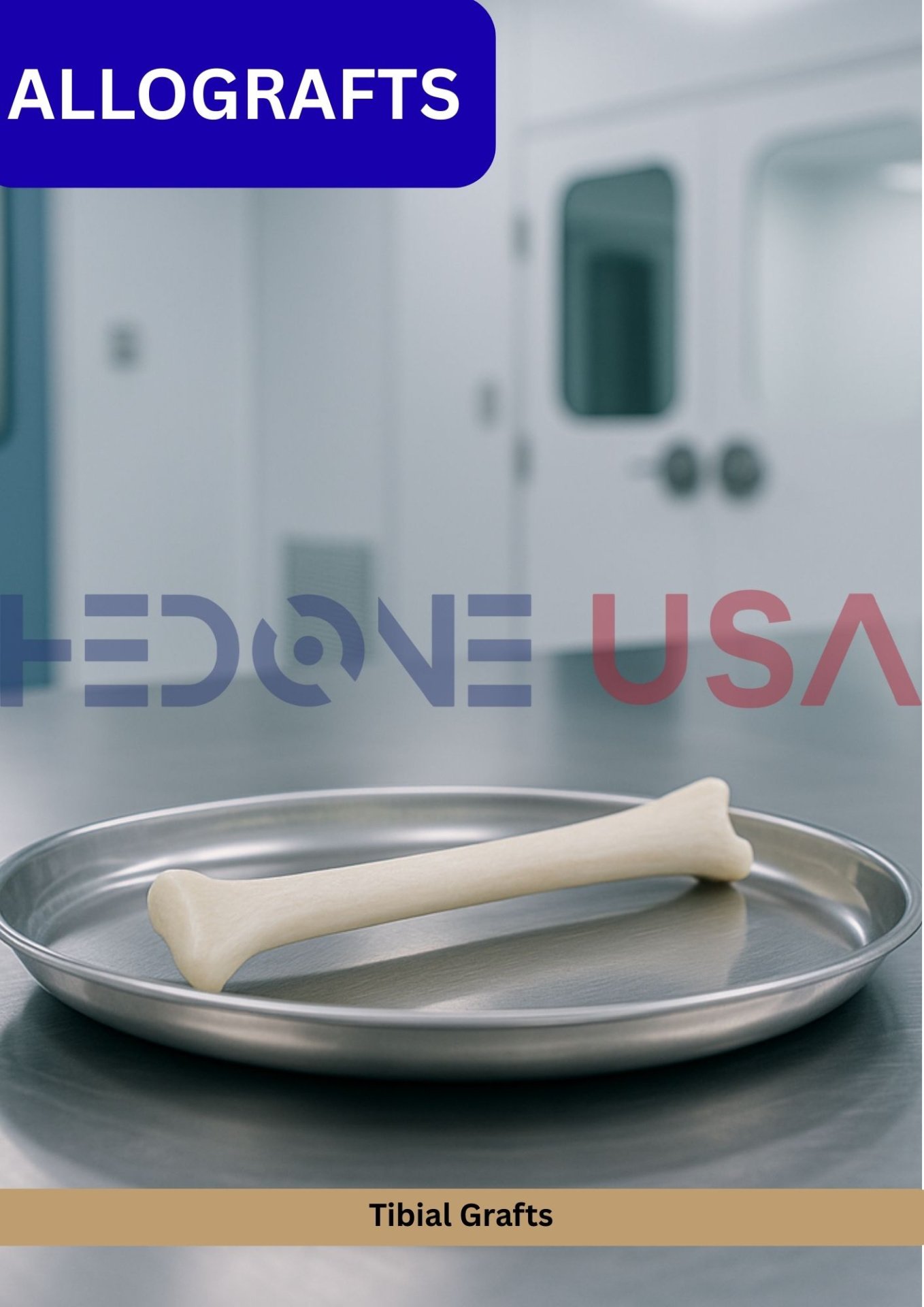Tibial Grafts are long-bone structural allografts derived from human tibia. This advanced method ensures deep cleaning, viral inactivation (SAL 10⁻⁶), and terminal sterilization, while preserving both the mechanical integrity and biological activity of the graft.
Due to their cortical-cancellous composition and natural strength, tibial grafts are widely used in orthopedic reconstruction, trauma surgery, oncology, and revision cases. They provide structural stability for load-bearing applications and serve as a biologically active scaffold for osteogenesis and integration with host bone.
Composition: Cortical-cancellous tibial bone allograft.
Biological Properties:
Osteoconductive: Provides a natural scaffold for new bone ingrowth.
Osteoinductive: Retains proteins and growth factors for bone regeneration.
Biocompatible: Remodels naturally with the host skeletal system.
Oncology: Reconstruction of defects following tumor resections.
Trauma Surgery: Limb salvage, segmental bone replacement, and major fracture reconstruction.
Orthopedic Surgery: Revision arthroplasty and structural grafting in load-bearing regions.
Spinal & Reconstructive Surgery: Long cortical segments for fusion and stabilization.
Whole tibial grafts
Segmental shafts, cortical strips, or wedges (customized upon request)
